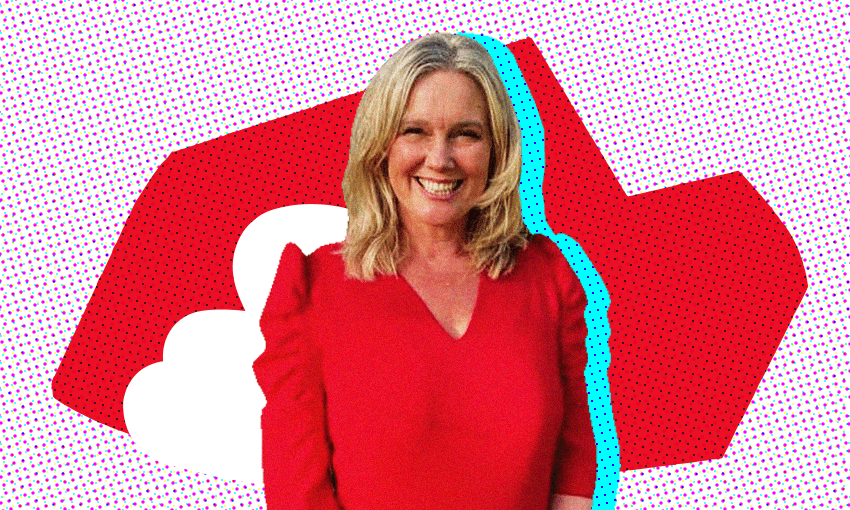For the first time in history, the Labour stronghold is on a knife edge with preliminary results showing the party’s candidate has just a lead of just 106 votes over National’s Melissa Lee.
The presumptive MP for Mount Albert has blamed the Greens for splitting the vote in the electorate after an unexpectedly nail-biting race for the once safe Labour seat.
On the preliminary count, Helen White has a razor-thin 106-vote majority over National’s Melissa Lee, who held an early and surprising lead for much of election night. White ultimately pulled in 9,997 votes, while Lee finished with 9,891. This was the sixth campaign in Mt Albert for Lee, who has been a list MP since 2008.
Green Party candidate Ricardo Menendez March polled third with 6,012 votes, over-performing when compared to previous Green candidates in Mt Albert, but still securing fewer votes than the party did in the seat.
Famous as a Labour stronghold, Mt Albert has never been held by any party other than Labour and was previously represented by party leaders Jacinda Ardern, Helen Clark and David Shearer. In 2020, Ardern trounced Lee by 22,000 votes.
After polls closed on election night, National’s Melissa Lee had an early lead in the seat. She told The Spinoff at the time that she believed she was a “beneficiary” of an overall swing to the right.
National snatched up a number of previously red electorates across the country, including other Labour fortresses like Mt Roskill and New Lynn. The shift against Labour in Auckland was particularly remarkable, as detailed by The Spinoff’s Duncan Greive.
But White told The Spinoff that it was less about a swing away from the left. “The obvious [factor] is that the Greens and Labour split some of the vote,” said White.
“If you add up the vote [between Labour and the Greens] it’s pretty good. I respect the right for the Greens to stand, that’s their absolute right. But that’s an obvious issue in the electorate.”
On preliminary votes, the combined Labour and Green vote in this election was 16,009 from preliminary voter turnout of 28,251.
In 2020, when Ardern received more than 29,000 votes, the Greens’ candidate Luke Wijohn returned 2,299 votes – a combined total of about 31,500.
Lee’s result on Saturday night was roughly in line with what she received in 2017. In that election, Ardern pulled in more than 24,000 votes and turnout in the seat was close to 39,000.
Roughly 20% of votes across the country were cast as special votes and are yet to be included in the total tally.
This was White’s first campaign in Mt Albert, having stood as Labour’s candidate for Auckland Central in the last election. That race saw a high-profile challenge from then Green list MP Chlöe Swarbrick who ultimately won the seat. During that campaign, White publicly suggested Swarbrick step aside in order to avoid vote splitting on the left. Despite her electorate loss, in 2020 White’s list ranking of 48 earned her a seat in parliament. This year, with Labour’s share of the party vote collapsing and White at number 47, she’s not even close, so maintaining a majority in Mt Albert is her only route to parliament.
Asked whether she would have preferred March chose not to run in Mt Albert, White said she had no control over what other parties did. “I think that’s politics,” she said.
Despite the close result and the risk of losing a safe Labour seat, White said she remained “incredibly proud” of her Mt Albert campaign. “You’ve got to remember that some of the other seats that I would have expected my long-term friends in the Labour Party to win… lost on the night,” said White. “So I couldn’t be prouder of my team – it was a wonderful thing that they did. They got out, they door knocked… and that’s why we are 106 votes ahead. I’m really proud of it.”
View this post on Instagram
White said she had no regrets about her campaign and couldn’t pinpoint anything she would have done differently. “I was absolutely working my socks off and the reality is with every campaign you’re always thinking if you had more time, what could you do. But I worked really hard,” she told The Spinoff.
“I think Mt Albert knows me now, a lot of people in Mt Albert know me because they’ve met me and they’ve had communications with me. I want to be the person who can listen and can zealously advocate for Mt Albert. That campaign was a really good part of doing that.”
Special votes are expected to be counted by November 3. White said she’d be a “fool” to try to predict the result. “I just have to wait and see,” she said. “I’m getting a lot of emails [from] people saying they support me from overseas, that’s a delight.”
White said she had done “everything” she could during the campaign. “If it doesn’t go my way, I’ve had an amazing experience connecting with my community,” she said.





